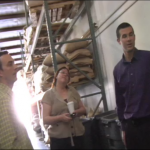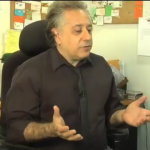In the world of academia, scientific conferences hold a significant place, often misunderstood as mere opportunities for travel or reunions. However, these gatherings serve a far more essential purpose, vital for the advancement of research and professional growth. This exploration delves into the multifaceted benefits of attending scientific conferences, highlighting their role in garnering invaluable feedback, fostering collaborations, and preparing undergraduates for their future careers. Join us as we uncover the true essence of these academic events and how they contribute to the development of scholars and the broader scientific community.
Maximizing the Impact of Scientific Conferences
Written by John A. Tures, Professor of Political Science at LaGrange College
The most important element to remember about attending a scientific conference is to recognize why these events exist. These get-togethers shouldn’t be about traveling to some exotic location, or simply catching up with colleagues at other colleges. That’s what a planned vacation or academic reunion should do. Conferences are for important work, to justify their cost.
1) The Best Feedback.
When I take my undergraduate students to academic conferences, I tell them the most important thing to get is feedback from others. “Don’t write about your paper’s strengths and weaknesses on the back of a bar napkin, or even hotel stationery,” I tell them. “It should go in a journal or notebook where you’ll keep that information around for your paper, so you can make those necessary revisions or incorporate new ideas.” It will give you an idea of what your future reviewers, and audience, will be thinking in a way that a virtual event may not fully capture. That will save you a lot of time in the publication process.
At conferences, you also make great connections with panelists. When presenting a paper about critical elections, I was fortunate to have one of the top American political scientists as a discussant: Alan Abramowitz. As we met at subsequent conferences, he told me that he had moved from being a skeptic to somewhat of a supporter of the theory, which went against the trend in the scholarly community. His feedback and that of other colleagues in attendance were highly invaluable in getting that research published in several venues, some of which were edited volumes of the best of the conference papers presented.
2) Opportunities for Collaboration
When you go to a conference, you are often in a relaxing situation, whether you are in the Bahamas or some small college town. It is a good idea to take advantage of a conference’s “collegiality” to work with other scholars, who could become your allies. I have been able to have my work included in special journals and publications, where connections were built at conferences. Other professors from different universities have had their research turn into co-authored articles, and even books, putting their minds together with late-night discussions at conferences that would not have been possible, or easy, without the face-to-face contact at a scholarly event.
Kimberly Shaw, a Physics Professor at Columbus State University, told me that conferences are also good for getting scholars to develop workshops, which are specialized conferences devoted to a single issue or problem in the field. Dr. Shaw pointed out that conferences are particularly useful for collaborating on grant proposals, as well as employment networking.
3) Preparation for Undergraduates in Their Research
Whenever possible, I bring a few of my undergraduate students with me, to see what a conference is like. These are valuable experiences for these young men and women, who get to learn what our scientific profession is really like. They’ve been given the chance to attend panels and even present research that they’ve collaborated on with me, or individual research that I’ve helped prepare them for. It’s been my experience that these undergraduates enjoy such conferences. “Why didn’t you tell us about these conferences before?” one remarked at one such event. “This is like Hogwarts!”
But it’s not just about a line on a resume that these students can use for graduate school, law school, or the jobs that they are pursuing. Presentations and panel group discussions transform them, giving them the confidence, and even direction, to focus their research and develop leadership opportunities for the future. Several of my students have gone on to become professors and lawyers, or careers in business. One student has even become a leader at the Atlanta Braves organization; she found her purpose and talents at a panel about high-impact practices, whereas one of two students, she and her fellow undergraduate from LaGrange College explained to the professors how such class activities helped their education.
One way in which conferences could be even better is to host competitions for posters and paper presentations. Not only will such awards boost these students’ vitae, but the contest will also help them prepare for the competitive world beyond graduation. The Association for Private Enterprise Education (APEE) and the Georgia Political Science Association (GPSA) are two good examples. After all, these undergraduates are part of our scholarly future. Preparing them earlier is one of the best things our profession can do.






